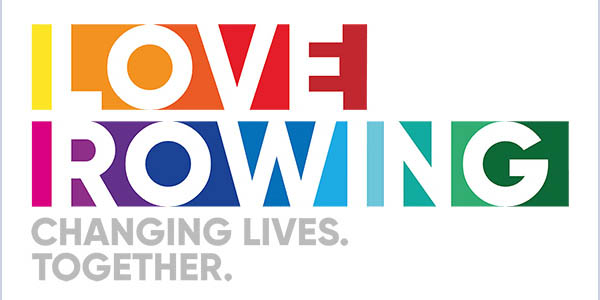Rowing and Epilepsy
Guidance from the British Rowing Medical Panel
British Rowing is committed to creating an inclusive environment where everyone can row, whilst at the same time maintaining high standards of safety for all participants.
The purpose of this guidance document is to provide information to individuals, and parents of children under 18, with epilepsy. It also contains information and guidance for coaches, club officials and event organisers so that everyone understands the risks associated with epilepsy.
British Rowing recommends that individuals with epilepsy, and their parents if the individual is under 18, work with their coaches, club officials and event organisers, using the guidance in this document, along with local and national safety advice, to risk assess and put in place appropriate measures to support a participant in rowing.
This guidance has been put together along with advice and information provided by the Epilepsy Society, but it is important that anyone with epilepsy has a discussion with their GP or specialist to better understand how they can manage their condition and take part in rowing safely.
Epilepsy and Water Sports – Epilepsy Society (May 2022)
“Many water sports can be made safer for people with epilepsy, by taking the right safety measures. This means considering what risk the activity involves as well as how your epilepsy affects you, what the risk would be if you were to have a seizure, and how you can make the activity safer.
- Wearing a lifejacket is recommended for most water sports.
- It is also important to have someone with you who knows how to help if you have a seizure for example, a friend, coach, or instructor.
Be realistic about the possible risks for the sport you are considering. For example, there is an additional risk if you were to have a seizure and [capsize] while [rowing].”
Know your condition – Your Personal Risk Assessment
If you have epilepsy, it is important to ask yourself the following questions, and if you are not sure, to discuss this with your GP or specialist. These questions form part of your risk assessment:
- What are your seizures like?
- Do you have seizures where you become unconscious, confused or are only partly aware of what is happening?
- When was your last seizure?
- Are your seizures controlled (stopped) with medication?
- When do your seizures occur?
- Are your seizures triggered by stress or tiredness?
- Are there any signs or symptoms that warn you that a seizure is going to happen?
- Would you be able to alert others and be able to get to a safe/safer place if on the water?
- What would make rowing safer for you?
Epilepsy varies from person to person and so the risks will depend on the nature of your epilepsy.
In Appendix 1, we have provided a list of questions we recommend you print out, complete, and share with your club, so they can support you with developing a complete and accurate risk assessment.
Advice for staying safe
Please ensure you declare your medical condition – don’t put others in danger who may need to assist or rescue you.
To mitigate any risks associated with having a seizure during rowing we would advise:
- Row with other people in groups.
- Ensure that at least one person who is either in your boat, or in your group knows basic rescue/life saving techniques including capsize, recovery, or man over-board recovery.
- Ensure that at least one person knows about your epilepsy and how to deal with a situation should you have a seizure.
- Ensure that any emergency medication that may be needed is within reach whilst you are on the water; this should be in your own waterproof bag secured in the boat, with your cox, or with a coach in a launch accompanying your crew.
- Wear a buoyancy aid or life jacket. This should be considered where the likelihood of a seizure is high and the likelihood of falling into the water is equally high.
- Ensure there is a communication protocol for getting assistance or contacting the emergency services from the water.
- Wear a medic alert bracelet or necklace.
- Regularly review your personal risk assessment and protocols to account for any updates or changes needed.
To help you produce your personal risk assessment with your club, use the safety information produced by the Epilepsy Society.
Advice for responding to someone having a seizure
General advice for responding to a seizure
Do:
- Guide them away from danger (such as roads or open water).
- Lie them down if possible and clear the area around them from hazards that may cause injury.
- Stay with them until recovery is complete.
- Time the seizure.
- Be calmly reassuring.
- Explain anything that they may have missed.
- Call for an ambulance.
- Contact the parents (if applicable).
Don’t:
- Restrain them.
- Act in a way that could frighten them, such as making abrupt movements or shouting at them.
- Assume they are aware of what is happening, or what has happened.
- Give them anything to eat or drink until they are fully recovered.
- Attempt to bring them round.
Advice for responding to a seizure whilst on the water
If someone is having a seizure whilst on the water and the person’s awareness is unchanged:
- Follow the plan agreed in the risk management protocol.
- Make sure you can assist without endangering yourself.
- Call for help and get the boat and rower off the water as quickly as possible.
- Don’t restrain them or act in a way that could frighten them such as shouting at them.
- Help the person to a safe place.
- Stay with them until the seizure is over and recovery is complete.
- Be calmly reassuring.
- Explain anything that they may have missed.
- Don’t give them anything to eat or drink until they are fully recovered.
- Call for an ambulance if you are concerned for the individual’s medical state.
If someone has a seizure and loses consciousness you should:
- Support the person in the water so their face remains above the surface.
- Do not restrain the person but get them out of the water as soon as possible.
- Ensure their airway and mouth is clear.
- Check their breathing; if they have stopped breathing commence CPR.
- Call an ambulance even if the person appears fully recovered.
- Call their parents if the rower is a child.
For further information and support visit epilepsysociety.org.uk but also work with the individual and their GP or specialist.
Risk Assessment for Clubs and Competitions
Club rowing
It is essential that clubs to carry out a risk assessment prior to someone with epilepsy participating in rowing on land or on the water.
The individual will need to provide the club with a completed Fact Find questionnaire (see Appendix 1) and give consent for the club to use this information in their risk assessment for the individual. The information provided should be comprehensive and current and the risk assessment completed jointly between the club and the individual, with further input from the individual and their GP/medical supervisor where required.
When completed, the club and the individual should use the risk assessment template (see Appendix 2) to work together to document the key risks, the mitigations and controls that need to be in place to support the individual when rowing.
The risk assessment will detail all the controls to put in place so that everyone knows the protocols to follow in the event that the individual has a seizure.
Furthermore, if the individual’s condition changes, it is important to update your risk assessment so that safety measures can be modified appropriately.
Competition rowing
We recommend the club obtains consent from the individual to share this risk assessment with any competition organisers. This will ensure the necessary provisions are in place so that the individual has a safe and enjoyable experience in the competition environment. It may be necessary for the competition organisers to carry out their own risk assessment, especially if the environment is significantly different to the individual’s home waters. Individuals may need to seek advice from their coach, club or outdoor centre on any increased risk and further precautions or notifications that may be required.



